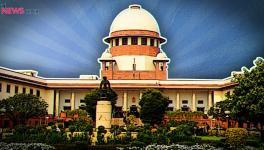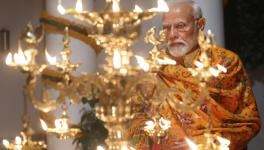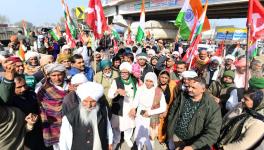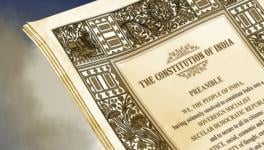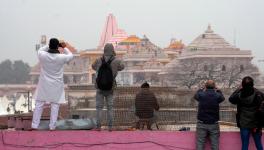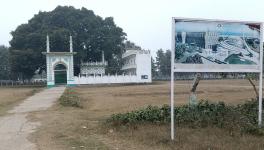One Faith, One God to Consume Republic’s Idea of India
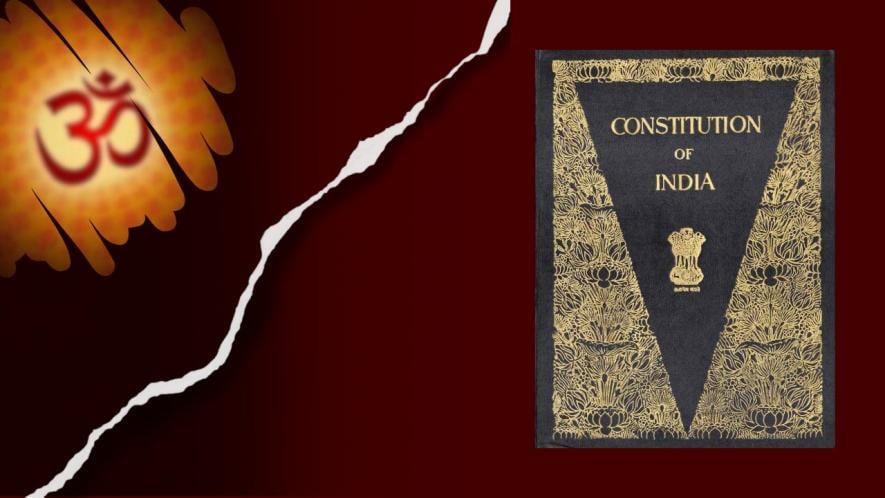
Equating God or religion with nationhood negates the neutrality of the Indian republic in terms of its relationship with and ideas about religion.
As the nation celebrates the 74th anniversary of Republic Day, the very identity of our country centered around republican values shaped during the freedom struggle is under assault from the pronouncements of none other than Prime Minister Narendra Modi. Recently, he equated “Dev” or God with “desh” or country, and the Hindu god “Shri Rama” with “rashtra” or nation. It happened while he participated in the consecration ceremony at the upcoming Rama temple in Ayodhya, Uttar Pradesh, on 22 January 22. He did so just four days before Republic Day, which is celebrated on January 26. Never in the history of our republic has a Prime Minister made Rama or any other god synonymous with the country.
Cabinet Resolution on Consecration of Rama Temple
Equating God or religion with nationhood negates the neutrality of the Indian republic in terms of its relationship with and ideas about religion. Not just the Prime Minister but even the Cabinet he heads adopted a resolution on January 24, two days before Republic Day, congratulating him for his participation in the consecration ceremony in Ayodhya. It made the extraordinary claim that while the “body of the nation was liberated in 1947, it had found its soul now [after the pran pratishtha or consecration ceremony conducted on January 22, 2024 in the Rama temple in Ayodhya].”
Republic Day celebrations awaken us to the values enshrined in our Constitution and empower citizens to examine what the Prime Minister said on 22 January and if the contents of the above resolution passed by the Cabinet synchronise with the Constitution and constitutional morality.
Mahatma Gandhi, Jawaharlal Nehru, Netaji Subhash Bose and BR Ambedkar would have been shocked to see the State represented by the Prime Minister and his Cabinet so flagrantly violating the legislative intent of the Constituent Assembly, which categorically rejected the divine right to govern and shape our Republic.
Gandhi’s Vision of the Republic
As early as 1895, Mahatma Gandhi defined republican principles regarding liberty, equality and fraternity. On March 19,1921, he boldly said that Indians had a birthright to establish a republic. This was despite the stringent penal measures taken by the British regime against freedom fighters who boldly put forth their vision to establish a republican form of government once India was liberated from colonial rule.
In Gandhi’s statement, one can still hear Lokmanya Tilak’s clarion call, “Swaraj is my birthright, and I shall have it.” That birthright took concrete shape on 26 January 1950, and Modi’s statement above and the Cabinet’s resolution starkly contrast with what was achieved regarding the founding of the secular Republic of India. All those who conducted readings of the Preamble of the Constitution on January 22, while the Prime Minister equated Rama with Rashtra, were defending the rights of Indians who celebrate their republic, rooted in multiculturalism and which treats all faiths equally. Gandhi best expressed the sentiment when he said in 1927 that his vision of India was neither wholly Hindu nor wholly Islamic or Christian but completely tolerant with all its religions coexisting.
Nehru’s Vision
The first Prime Minister of India, Jawaharlal Nehru, while moving the Objectives Resolution in the Constituent Assembly on December 13, 1946 to create a sovereign democratic republic, rejected the divine right to power and proclaimed the people as the source of all power and authority to govern India. Tragically, such foundational ideals of our Republic are being negated by the powers that be today despite the grand Republic Day celebrations we witness.
Ambedkar’s Vision
Ambedkar, in his speech on the Objectives Resolution, stated that controversy arose over the words “Republic” and “Swaraj”, or independence, as at the core of the idea of India. In that context, he observed that while talking about the republic, it would be dangerous to simultaneously talk about the solution of Hindu-Muslim issues by methods of war. He cautioned that the language used to settle that issue amounted to launching a war against Muslims and warned that such a war would never end and none would emerge a winner.
So, he urged the rulers of the time to eschew pride from the majority strength they enjoyed in the Assembly and take action by displaying statesmanship and wisdom. He also pleaded with leaders to shun slogans and words that frighten people and take every party and section of society along.
He said, “It would be an act of the greatest statesmanship for the majority party even to concede the prejudices of people unprepared to march together”.
Today in India, when some Hindutva organisations shout the ‘Jai Shri Ram’ slogan very aggressively right in front of places of worship of people professing other faiths, not conforming to the faith of the majority of people, those words of Ambedkar to avoid slogans that frighten people resonate more intensely.
BJP leaders, including Prime Minister Modi, claim that they did more to honour Ambedkar than the Congress party should at least pay heed to those words of Ambedkar to uphold our republic.
Netaji Subhash Bose’s Vision
The reference above is with respect to the Cabinet Resolution on the “body” of the country attaining independence in 1947 and “the pran pratishtha of its soul” taking place on January 22. Does it mean that the body of India was dead in 1947, and those who founded the Republic of India by framing the Constitution and making it operational on January 26, 1950 kept it devoid of a soul? Our freedom fighters affirmed that despite centuries of foreign rule, the soul of India remained vibrant and animated, guiding generations of freedom fighters towards liberation and progress.
It was best represented in the statement of Netaji Subhash Chandra Bose, who said on February 16,1926 that “the might of Britain has got to take cognisance of the values which the people of India hold dear”. He also asserted, “The pages of Indian history teem with the undying examples of martyrs who suffered and died… so that India may live.”
He then added, “And in spite of our misery and degradation, India still lives… because her soul is immortal.”
So, the Cabinet Resolution claiming that the pran pratishtha of India’s soul was done on January 22 because Prime Minister Modi participated in the consecration ceremony at the Rama Temple in Ayodhya constitutes an offence to the vision of India nurtured by Netaji Subhash Bose, who held that India’s soul is immortal.
To Gandhi, Republic Meant Coexistence
In a prayer meeting in Delhi on June 12, 1947, Mahatma Gandhi referred to Nehru’s initiative to name our country as a sovereign democratic republic and explained the meaning of republic. He said that in a republic, “all will live together”. He did so when Indians suffered deep pain caused by the partition of the country, in which millions of people of all religious persuasions who had lived together for thousands of years were displaced and killed in the name of religion.
Therefore, Gandhi’s interpretation of the meaning of “republic” in terms that “all will live together” is of abiding significance when the country is witnessing aggressive religious frenzy and instances of mosques and churches being vandalised. There have been reports in the media of saffron flags hoisted on mosques and churches following the consecration ceremony of the Rama temple in Ayodhya. Such events contradict the ideals defining our republic, which we must defend and sustain by upholding India’s constitutional vision.
The author served as Officer on Special Duty to President of India KR Narayanan. The views are personal.
Get the latest reports & analysis with people's perspective on Protests, movements & deep analytical videos, discussions of the current affairs in your Telegram app. Subscribe to NewsClick's Telegram channel & get Real-Time updates on stories, as they get published on our website.










